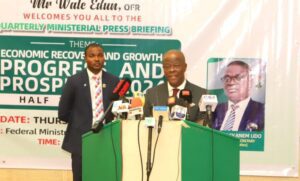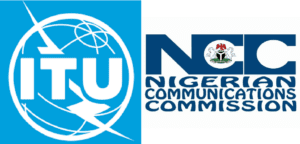


MPC members attribute rising inflationary pressure to food inflation
…Seek increased security of farming communities
…Raise interest rate to 26.25%
By Seun Ibiyemi and Mathew Denis
The Monetary Policy Committee, MPC, members of the Central Bank of Nigeria, CBN, have attributed rising inflationary pressure to food inflation. This was as they increased the benchmark interest rate by 150 basis points from 24.75 percent to 26.25 percent.
The Governor of the CBN, Olayemi Cardoso, who doubles as the Chairman of the MPC disclosed this at the end of the 295th MPC meeting which was held on Monday and Tuesday in Abuja.
Cardoso revealed that while the Monetary Policy Rate was increased, all other rates were retained.
MPC members, however, noted that the inflationary pressure continues to be driven largely by food inflation.
The Committee reiterated several challenges confronting the effective moderation of food inflation to include: rising cost of transportation of farm produce; infrastructure-related constraints along the line of distribution network; security challenges in some food producing areas; and exchange rate pass-through to domestic prices for imported food items.
It urged that more be done to address the security of farming communities to guarantee improved food production in these areas.
It raised the MPR by 150 basis points to 26.25 percent from 24.75 percent, retained the asymmetric corridor around the MPR to +100/-300 basis points, retained the cash reserve ratio of Deposit Money Banks at 45 percent, and held the liquidity ratio at 30 percent.
Revealing the considerations of the MPC, Cardoso said, “The key focus of the MPC at this meeting remained to achieve price stability by effectively using tools available to the monetary authority to rein in inflation. Members observed that while year-on-year inflation in April 2024 rose moderately, the month-on-month headline food and core measures declined significantly.
“This follows a decline in month-on-month headline and food measures in March 2024, suggesting that the recent tight monetary stance of the bank is beginning to yield the desired outcome. The MPC, however, noted that the inflationary pressure continued to be driven by food inflation.
“The committee thus reiterated several challenges confronting the effective moderation of food inflation including rising cost of transportation of farm produce, infrastructure constraints along the line of distribution network, security challenges in some food-producing areas and exchange rate pass-through to domestic prices for imported food items. The MPC urged that more be done to address the security of farming communities to guarantee increased food production in these areas.”
On the continued instability of the Nigerian currency, Cardoso said that it was a function of the free market system.
“Members further observed the recent volatility in the foreign exchange market attributing this to seasonal demand, a reflection of the interplay between demand and supply of a freely functioning market system. The committee also noticed the marginal increase in the foreign reserve between March and April 2024,” he said.
Since the MPC resumed meeting this year, this is the third consecutive increase that has been done. In all, the MPC has increased the MPR by 750 basis points since February.
The MPR was increased by 400 basis points to 22.75 percent from 18.75 percent in February. It was increased by 200 basis points to 24.75 percent in March and currently by 150 basis points to 26.75 percent in May
The MPC has maintained a hawkish stance since in a bid to tackle Nigeria’s persistent inflation.
As of April, Nigeria’s inflation rate had risen to 33.69 percent. The April 2024 headline inflation rate showed an increase of 0.49 per cent points when compared to the March 2024 headline inflation rate, according to the National Bureau of Statistics.
The NBS said that on a year-on-year basis, the headline inflation rate was 11.47 percent points higher compared to the rate recorded in April 2023, which was 22.22 percent. Food Inflation was 40.53 percent in April 2024
Ahead of the MPC meeting, some analysts projected a rate hike in line with the avowed stance of the CBN to fight inflation with some projecting an interest rate of 25.75 percent, which the MPC has surpassed.
In their weekly macroeconomics report ahead of the MPC, analysts at Meristem Research projected that the MPC would hike rates in line with its avowed inflation-fighting stance.
The analysts said, “During the meeting, we expect the committee to deliberate on disinflationary trends observed in advanced economies, as well as the sustained ‘high for longer’ interest rate stance employed by monetary authorities to effectively combat inflation in these economies.
“In the domestic economy, Nigeria’s inflation rate came in lower than expected in April 2024, rising to 33.69 percent from 33.20 percent in the previous month (marking the 16th consecutive month of inflation uptrend). This uptick is primarily attributed to increases in both the food and core indexes, driven by higher food prices and the continued depreciation of the naira.”
Analysts at Cordros Asset Management echoed similar sentiments that the MPC may increase their benchmark rate, projecting a 0.5 percent hike.
They pointed out that aside from global central banks approaching the end of the interest rate hiking cycle, “we think the MPC has reached a point where overtightening becomes a concern even as the debate remains on what constitutes a neutral interest rate that will not hurt domestic growth.”
“As such, we think the dilemma for the committee at the meeting will remain whether to continue its rate hike to further dampen the rising inflation trajectory or adopt a hold stance to observe emerging developments and allow for the impact of the last rate hikes to permeate the economy.
“In our view, given that the end of rate hikes by systemic global central banks is in sight amid sticky domestic inflation, we think the MPC is likely to maintain a slower rate hike at this meeting. Indeed, at the post-MPC conference in March, the CBN governor stated that maintaining aggressive tightening poses a risk to financial system stability.”
Reacting, Commercio Partners firm said the Apex Bank’s rate hike is expected to exert increased strain on the economy, particularly on businesses. The economy, already grappling with numerous social and economic challenges, may face further destabilisation. An increase in the minimum cost of borrowing could slow down the corporate sector, potentially leading to a decline in the stock market.
Additionally, the recent interest rate hike is expected to stimulate activity in the fixed-income market by making new securities more attractive. New bonds will be issued with higher yields to reflect the increased policy rate. Investors will demand higher returns to compensate for the elevated interest rate environment. As a result, long-duration bonds, which are more sensitive to interest rate changes, are likely to experience greater price declines compared to short-duration bonds as rates rise.
On the macroeconomic front, the increased interest rate may slow GDP growth and hinder stock market appreciation. Furthermore, this policy could exacerbate the unemployment issue facing the Nigerian economy. Despite these challenges, there is a slim possibility that inflation rates may ease somewhat by the end of the year.
Also reacting Director, Upfront Enterprise, Dr. Faiva Haruna stressed the Monetary Policy Committee (MPC) hike of the Monetary Policy Rate (MPR) to 25.25 percent increase in the rate may discourage people and businesses from going to the Nigerian Stock Exchange Market as it may not be safe for them.
“They will have to smell the coffee, I know in a matter of weeks, their banks will start writing them for a review of rate, and for those that want to start a business that needs funding, they will be affected by the rate as well- that is why we say when you increase rate (monetary) it will crowd out employment,” he said of business owners.
Also speaking, the Executive Director of Nigerian Workforce and Enlightenment Center (NIWOSEC), Dr. David Ehindero advised that the decision of the MPC would further impact the real economy, which is already facing several macroeconomic difficulties.
According to him, “The decision was consistent with the typical policy response of the Central Banks globally, it failed to reckon with domestic peculiarities. The key drivers of Nigeria’s inflation are largely supply-side variables and the CBN ways and means of financing.
“Over the last two years, there has been persistent monetary policy tightening, yet there has not been any significant impact on the inflationary pressures. If anything, the general price level has been continuously on the increase,” he said.
He pointed out that the impact of monetary policy on the Nigerian economy is still quite limited, with weak transmission effects.



